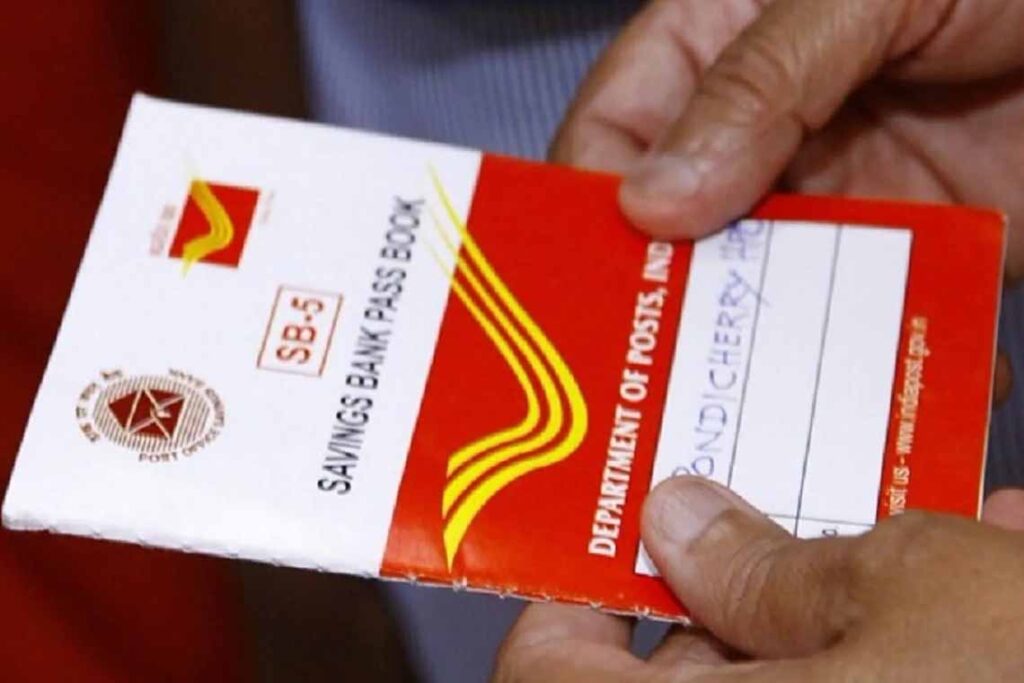The Income Tax Act, 1961, includes specific provisions to protect the interests of Micro, Small, and Medium Enterprises (MSMEs). One such provision is Section 43B(h), which was introduced to ensure timely payments to MSMEs.
Micro, small and medium enterprises (MSMEs) are vital for the economic growth and development of India. They contribute significantly to the gross domestic product (GDP), employment, exports and innovation of the country. However, MSMEs often face various challenges and difficulties in their operations, such as lack of access to finance, technology, markets and skilled manpower. One of the major issues that affects the profitability and sustainability of MSMEs is the delay in payments from their buyers, especially large enterprises and government agencies. Delayed payments not only affect the cash flow and working capital of MSMEs, but also expose them to the risk of default and insolvency. To protect the interests of MSMEs and ensure timely payments, the government has enacted various laws and regulations, such as the Micro, Small and Medium Enterprises Development Act, 2006 (MSMED Act) and the Insolvency and Bankruptcy Code, 2016. However, these laws and regulations also have implications for the taxation of MSMEs and their buyers. In this article, we will discuss the provisions of the Income Tax Act, 1961, that deal with the disallowance of payments made to MSMEs beyond the specified time limit, and the consequences and implications of such disallowance for both the parties. We will also examine the recent amendments introduced by the Finance Act, 2023, in this regard.
Classification of MICRO or SMALL Enterprise
In order to classify MICRO or SMALL Enterprises the definitions of Micro and Small Enterprises under the MSME Development Act 2006 are reproduced below :-
S-2(h) – Micro Enterprise means –
“an enterprise classified as such under sub-clause (i) of clause (a) or sub-clause (i) of clause (b) of sub-section (1) of section 7;”
S-2(m) – Small Enterprise means –
” an enterprise classified as such under sub-clause (ii) of clause (a) or sub-clause (ii) of clause (b) of sub-section (1) of section 7;”
S-2(e) – Enterprise means –
“an industrial undertaking or a business concern or any other establishment, by whatever name called, engaged in the manufacture or production of goods, in any manner, pertaining to any industry specified in the First Schedule to the Industries (Development and Regulation) Act, 1951 (65 of 1951) or engaged in providing or rendering of any service or services”
The definition of micro, small and medium enterprises as per section 7 of the MSMED Act is based on the investment in plant and machinery or equipment and the turnover of the enterprise. The following table summarizes the criteria for each class of enterprise:
| Enterprise Class | Investment in Plant and Machinery or Equipment | Turnover |
| Micro | Does not exceed Rs. 1 Crore | Does not exceed Rs. 5 Crore |
| Small | Does not exceed Rs. 10 Crore | Does not exceed Rs. 50 Crore |
| Medium | Does not exceed Rs. 50 Crore | Does not exceed Rs. 250 Crore |
The only persons engaged in manufacturing or production of goods and or rendering of services shall be classified as an Enterprise under this act. Further, Supplier under the MSME Development Act 2006 is defined as a person who is registered under the Act, hence Micro or Small Enterprise who are not registered under the Act would not be covered under the Definition of Section 43B(h).
The insertion of section 43B(h) in the Income Tax Act is a significant step in promoting the timely payment culture and ensuring the financial stability of MSMEs. However, it also imposes a compliance burden on the buyers who procure goods or services from MSMEs. They need to verify the status of the suppliers and ensure that the payments are made within the stipulated time frame to avoid disallowance of expenditure and consequent tax liability.
Amendments to Section 43B-
According to Section 43B of the Income Tax Act, 1961, certain deductions are allowed only on actual payments rather than on an accrual basis. This means that if an expense is incurred in a financial year, but not paid before the due date of filing the return, it will not be allowed as a deduction for that year.
One of the amendments introduced by the Finance Act, 2023, is the addition of clause (h) to section 43B of the Income Tax Act, which deals with disallowance of payments made to micro or small enterprises (MSMEs) beyond the specified time limit. This amendment aims to promote timely payments to MSMEs and protect their interests. The legal texts is reproduced as under-
“43B. Notwithstanding anything contained in any other provision of this Act, a deduction otherwise allowable under this Act in respect of—
(h) any sum payable by the assessee to a micro or small enterprise beyond the time limit specified in section 15 of the Micro, Small and Medium Enterprises Development Act, 2006 (27 of 2006),
shall be allowed (irrespective of the previous year in which the liability to pay such sum was incurred by the assessee according to the method of accounting regularly employed by him) only in computing the income referred to in section 28 of that previous year in which such sum is actually paid by him.”
While other provisions of Section 43B provide that if payments are made prior to the due date of filling of return of income u/s 139(1) such deduction shall be allowed in the year in which such expenses were incurred. However, such benefit has not been extended to Clause (h), relevant proviso is reproduced as under-
“Provided that nothing contained in this section except the provisions of clause(h) shall apply in relation to any sum which is actually paid by the assessee on or before the due date applicable in his case for furnishing the return of income under sub-section (1) of section 139 in respect of the previous year in which the liability to pay such sum was incurred as aforesaid and the evidence of such payment is furnished by the assessee along with such return.”
Meaning thereby that if payments are not made to a Micro and Small Enterprises within the time limit specified under the Micro, Small and Medium Enterprises Development Act, 2006 the deduction shall be allowed only in the year in which payments have actually been made.
The specified time limit for making payments to MSMEs is determined by section 15 of the Micro, Small and Medium Enterprises Development Act, 2006 (MSMED Act). This section states that the buyer shall make payment to the supplier on or before the date agreed upon in writing, or where there is no agreement, before the appointed day. The appointed day is the day following immediately after the expiry of 15 days from the day of acceptance or the day of deemed acceptance of the goods or services by the buyer. However, in no case, the agreed period can exceed 45 days from the day of acceptance or the day of deemed acceptance.
If the buyer fails to make payment to the MSME supplier within the specified time limit, the amount payable will be disallowed as a deduction under section 43B(h) of the Income Tax Act. This disallowance will apply irrespective of the previous year in which the liability to pay arose. The disallowance will also apply only if the supplier is a micro or small enterprise, as defined by section 7 of the MSMED Act. A medium enterprise will not be covered by this provision.
Key Provision: Section 43B(h):
Section 43B(h) was introduced by the Finance Act, 2023, and is applicable from Assessment Year 2024-25 (Financial Year 2023-24). It mandates that any delayed payment to MSMEs beyond the specified time limit will be disallowed as a deduction in the hands of the buyer.
Applicability:
- Applies to buyerswho purchase goods or services from registered MSMEs.
- MSMEs must be registered under the Micro, Small, and Medium Enterprises Development (MSMED) Act, 2006.
Time Limit for Payment:
- As per the MSMED Act, 2006, payments to MSMEs must be made within:
- 45 daysfrom the date of acceptance or deemed acceptance of goods/services.
- If there is a written agreement between the buyer and the MSME, the payment must be made as per the agreed terms, but not exceeding 45 days.
Disallowance of Deduction:
- If the buyer fails to make the payment within the specified time limit, the amount payable to the MSMEwill be disallowed as a deduction in the year in which the expense was incurred.
- The deduction will be allowed only in the year in which the payment is actually madeto the MSME.
Example:
- Suppose a buyer purchases goods worth ₹10 lakh from an MSME on April 1, 2023, and the payment is due within 45 days(i.e., by May 15, 2023).
- If the buyer fails to make the payment by May 15, 2023, the ₹10 lakh will be disallowed as a deductionin the Financial Year 2023-24 (Assessment Year 2024-25).
- If the payment is made on June 1, 2024, the deduction will be allowed in the Financial Year 2024-25 (Assessment Year 2025-26).
Other Relevant Provisions for MSMEs:
- Interest on Delayed Payments (Section 23 of MSMED Act):
- If a buyer fails to make payment to an MSME within the specified time limit, the buyer is liable to pay compound interestat three times the bank rate notified by the RBI.
- Section 80IC (Tax Incentives for MSMEs):
- MSMEs operating in specified regions (e.g., North-Eastern states, Himachal Pradesh, Uttarakhand) can claim tax deductionsunder Section 80IC.
- Presumptive Taxation (Section 44AD):
- Small businesses with a turnover of up to ₹3 crore (₹2 crore for non-digital transactions) can opt for presumptive taxation and pay tax on a deemed profit of 6% (8% for non-digital transactions).
Interest on delayed payments made to MSMEs-
As per section 16 of the MSMED Act, if a buyer fails to make payment to an MSME supplier within the specified time limit, the buyer shall be liable to pay compound interest with monthly rests to the supplier at three times of the bank rate notified by the RBI.
This interest is considered as penal in nature and is not allowed as a deduction under section 37 of the Income Tax Act, 1961. Moreover, section 23 of the MSMED Act prohibits the buyer from claiming any deduction for the interest paid or payable to the MSME supplier under the Income Tax Act, 1961. This means that the buyer has to bear the additional tax burden on the interest amount, apart from the interest itself.
Moreover, Section 24 of MSMED Act provides that sections 15 to 23 shall have effect notwithstanding anything inconsistent therewith contained in any other law for the time being in force.
This provision is intended to discourage the buyers from delaying the payments to MSMEs and to protect the cash flow and working capital of MSMEs. However, it also creates a compliance challenge for the buyers, as they have to verify the status of the suppliers, calculate the interest liability, and report the same in their financial statements and tax returns. Furthermore, The Companies Act, 2013 provides that a Company must file e-form MSME-1 every half year with Registrar of Companies mentioning all the transaction, wherever payment made after 45 days and is also required to give certain additional information in its financial statements.
Therefore, the issue of disallowance of interest paid or payable to MSME is a significant one for both the MSMEs and their buyers, as it has implications for their profitability, taxation, and compliance. The buyers should ensure that they make timely payments to MSMEs to avoid the interest liability and the disallowance of the same. The MSMEs should also keep track of their receivables and claim the interest due from the buyers as per the MSMED Act. Through the twin provisions both issues of payment of principle amount and the interest has been covered under disallowances.












